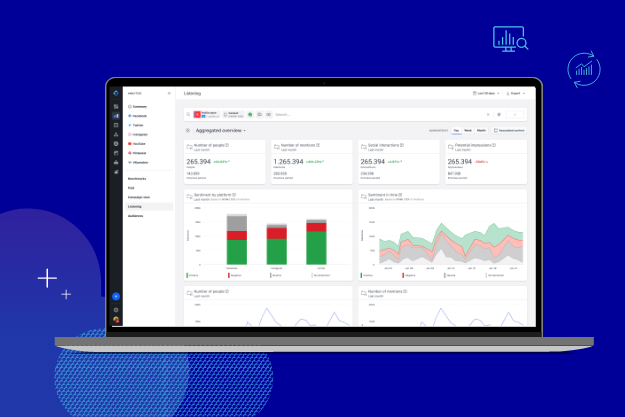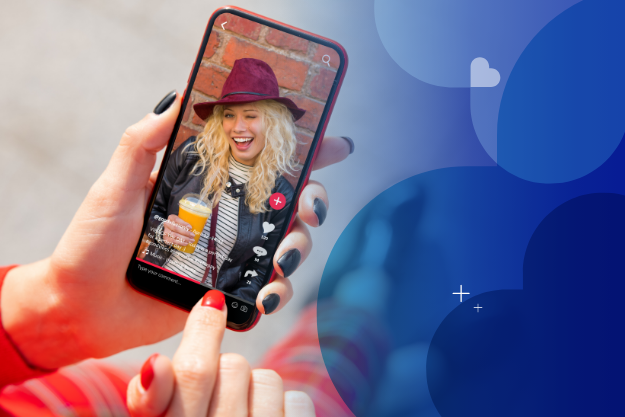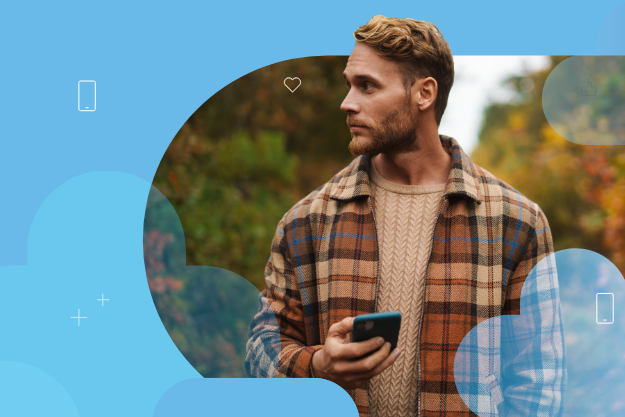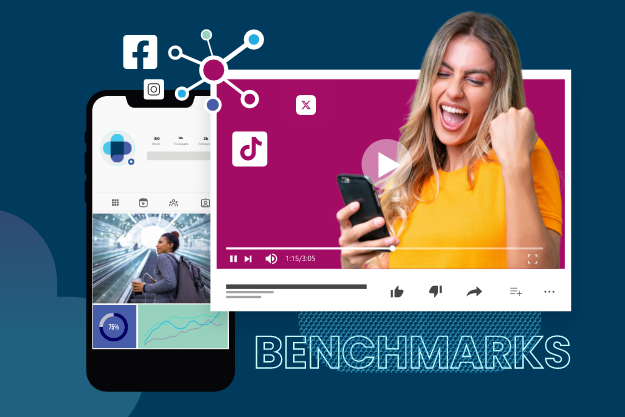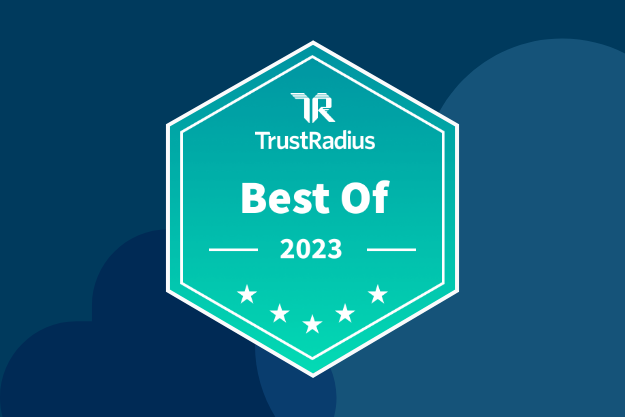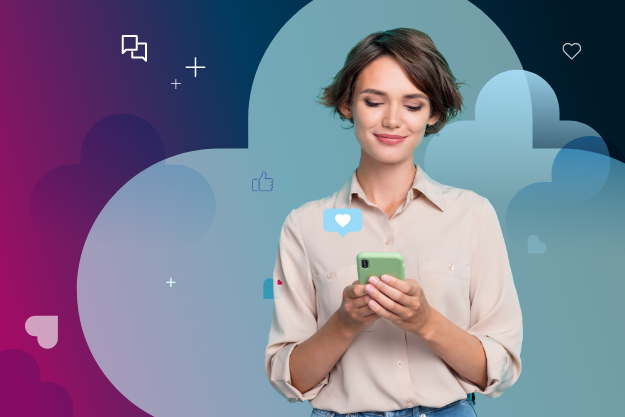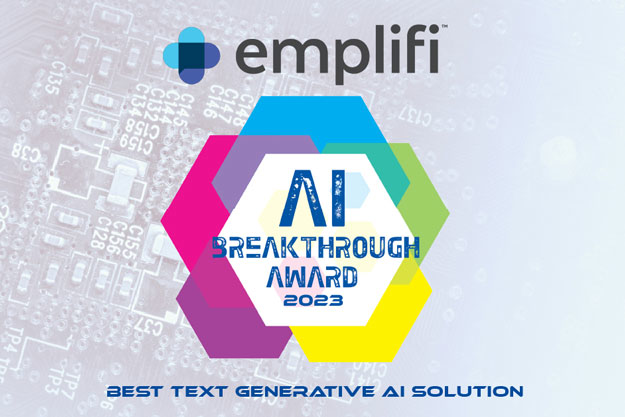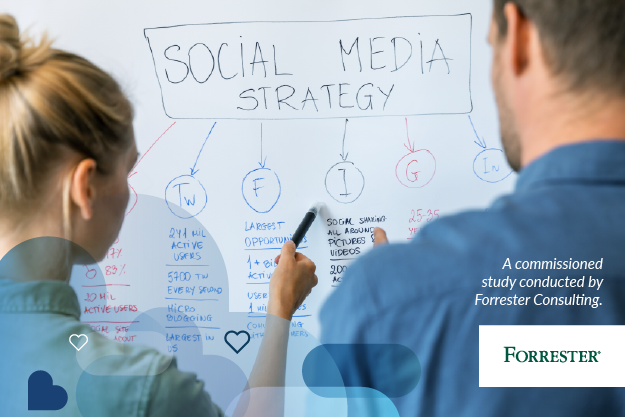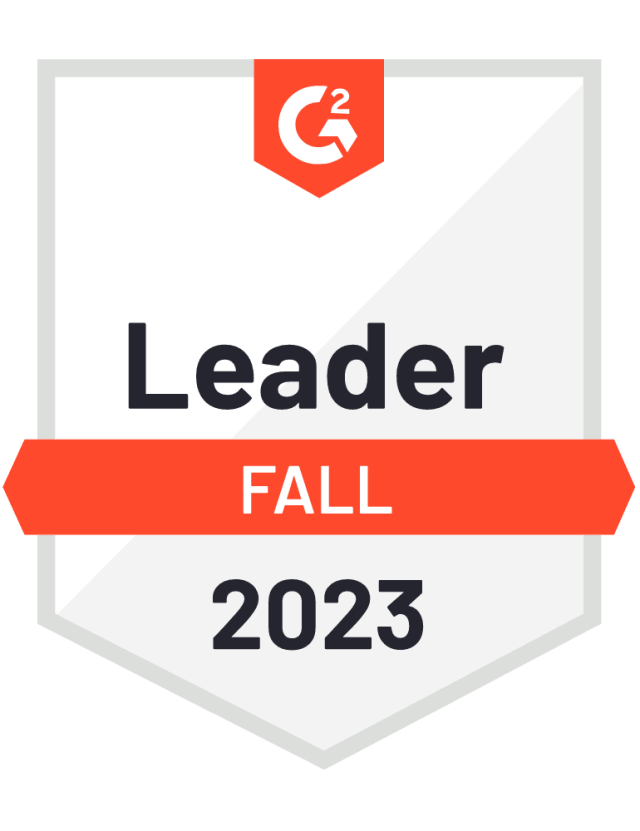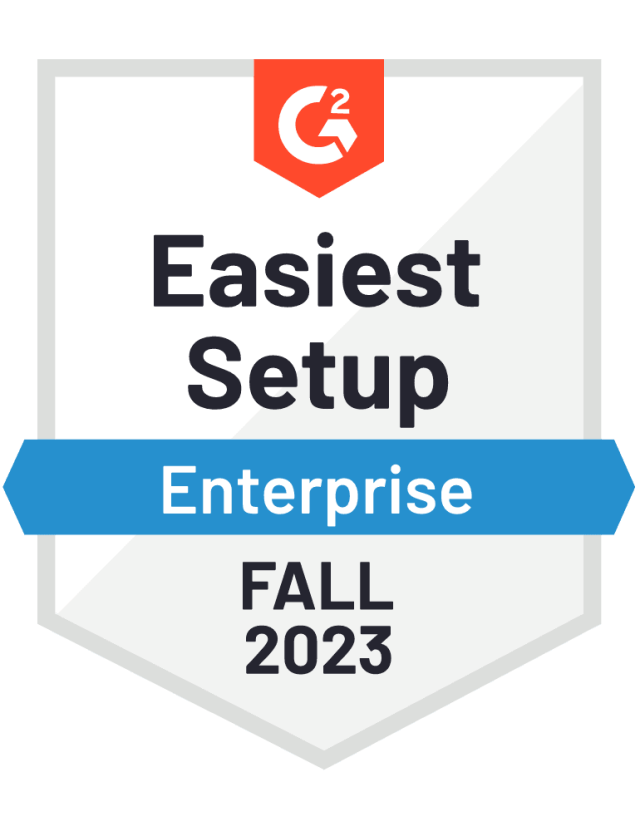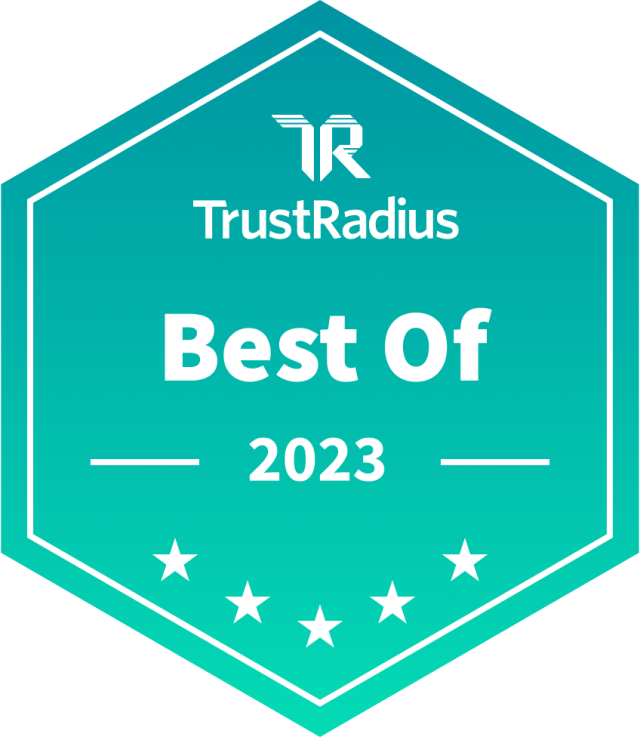Personalized marketing is a marketing strategy where businesses use audience analysis and data to deliver more relevant messages to their target audience.
Put into simple terms, this means that businesses collect and process information on their audiences' interests, demographics, and behaviors to create more relevant content that provides more value.
As an Internet user, you’ve been served with personalized content multiple times. Think Netflix and their "Recommendations for you" section. The recommended shows are curated based on the previous content you watched, which enables Netflix to display other shows you're most likely to enjoy.
What does all this mean for your brand? Let’s take a deep dive into the why and how of personalized content.
Table of contents
Your customers want more personalized content
The same recommendation-based system that allowed you to discover that new Netflix series can help your customers learn about your business and products.
Personalized content and tailored recommendations are no longer "nice-to-have," but an absolute "must-have" for a large number of consumers. Today's customers want brands to view them as distinct individuals with unique characteristics and preferences, as opposed to a faceless consumer. In fact, 39% of Gen X and Millennial consumers say ads that are specific to consumer behavior are the most effective. Customers' desire to be recognized by brands on an individual level largely impact their purchase decisions.
Marketing personalization can sway potential customers to become buyers. On the other hand, the lack of personalized content can have a negative impact on your business. According to a McKinsey and Company report, 71% of consumers expect personalized interactions, and 76% get frustrated when these personalized interactions are not provided. In cases where consumers find their experience unsatisfactory, opting for an alternative has become increasingly convenient. Notably, three-quarters of consumers made a switch to a different store, product, or purchasing approach amid the pandemic.
The numbers speak for themselves — customers demand individualized experiences, and brands that fail to provide these might lose a big share of their clientele.
Personalized marketing will benefit your business
Customers' expectations are just one reason you should embrace personalization in your social media marketing activities. Here are five more arguments in favor of crafting individualized messages that can benefit your business:
Boost your social media engagement
Personalized content is more meaningful, which is why more users interact with it. One example of this sort of content is quizzes, with the average one getting shared 107 times. That’s some significant engagement, and it’s driven by the fact that it’s content that speaks directly to each individual person.
Improve your Facebook relevance metrics and ad costs
Tailored messages are relevant to your target audience. That's why they can generate more positive feedback and receive stronger Facebook relevance metrics, which can decrease the cost of your Facebook advertising activities.
Generate more leads and conversions
More people will interact with individualized marketing, meaning there's a bigger chance to convert them. In fact, 63% of marketers see increased conversion rates as the main benefit of personalization, whereas 31% cite increased eCommerce revenues as the main benefit of this tactic. Personalization can greatly increase your social media ROI and help you achieve your marketing objectives.
Strengthen customer loyalty and brand affinity
An audience served with personalized messages feels recognized and cared for by a brand. As a result, they become more loyal and approve of a business.
Increase brand awareness
Once users develop a connection to your brand, they’ll be more eager to spread the word about you in their personal networks. A survey conducted by RRD reveals that “the majority (55%) of consumers have discovered a new brand, product, or service in the past year through word of mouth.”
Personalizing your marketing starts with audience analysis
So now you know why you should tap into personalization. Now, where do you begin individualizing your social media marketing efforts?
The answer is simple - learn about your target audience. Getting to know your followers is critical to understanding how to best personalize your content to make it more effective.
Start off by running a thorough audience analysis on each social channel you're present on, and map out your buyer personas. To do that, study your followers in terms of:
Demographics
Social media likes and interests
Content Preferences
Followed influencers
Customer journey stage
As you can see, the demographic data, which was once the core of companies' audience analysis, is no longer sufficient to outlining your buyer personas. Today, you should dive deeper and learn about your followers' likes, interests, and behaviors in order to get to the bottom of who they are and how you can communicate with them on a more personal level.
To give you a hint on what you need to define your personas - here's an example:

It's also important to pay attention to which stage of the customer journey your audience is at. Content for those who are just learning about your brand might require less personalization than the messages for your long-term followers.
Finally, bring together your social and digital data to track how users are moving between the social channels and your website. This will allow you to better understand their behaviors (including purchasing choices), see how they are different, and decide where to use personalized content to increase conversions.
4 proven tactics to personalize your social media marketing
Now that you know your followers inside and out, it's time to put all that information to work and start creating personalized experiences. Here's how:
1. Create content tailored to your personas
Crafting content for your buyer personas should start with picking the right format and topic.
To choose the best content format, look at your personas' engagement behaviors — are they interacting most with images, videos, links, or articles? Use this information to pick the format that will resonate with your audience.
Of course, this doesn't mean you should be sticking to one format only. Diversity is great, but the core of your content strategy should be the format your audience feels most passionate about.
Picking the right topic might be a little bit more difficult. That's because you need to analyze your audience's interests, pinpoint those related to your business, and weave them into your content strategy.
Sounds challenging? A creative brainstorming session or content library will help you to find ideas for personalized content that combines your followers' interests with your brand messaging.
After you tailor the content formats and topics to each of your buyer personas, it's time to think about how you want to distribute your tailored posts. There are two ways to do that, depending on whether you’re relying on paid or organic reach.
Paid: In the case of paid reach, you can leverage social media platforms' advanced targeting options based on interests and behaviors to get your content in front of different audience groups simultaneously.
Organic: If you rely on organic reach, focus on your largest persona group, and publish posts tailored to this segment more frequently. Alternate them with content aimed at the smaller persona groups to appeal to a cross-section of your audience. You can also use Facebook's organic post targeting option to deliver content to specific audience segments based on their interests.
Make sure to always A/B test your content and measure its performance as you go.
2. Align your content with the customer journey
Tailoring your content to the stages of the customer journey is as important as marketing personalization.
Typically, the customer journey consists of three stages: awareness, consideration, and conversion. Each of these stages is different in terms of how familiar users are with your brand and how ready they are to buy — which is why you need to create diverse personalized content.
Stage 1: Awareness
At this stage, customers don't know your brand that well and are just searching for a product that would best fit their needs. This is the time to think about how you can grasp users' attention and make them want to come back.
At this point, you can target your buyer persona lookalikes with personalized content. Remember that your posts should be engaging and help you establish a relationship with your followers.
Stage 2: Consideration
The next stage is where you want customers to consider buying something from your business. You should convince them you're the right choice by offering helpful content that addresses users' pain points.
The consideration stage is where users have likely already interacted with your social media posts. It's a great moment to do audience analysis and use data to create personalized content. You can also see how the new audience you're pulling in compares to your previously defined buyer personas and publish tailored content explaining how your brand can solve their problems.
Stage 3: Conversion
Finally, you want to convert users who are most ready to buy. Some of them might need an extra push, though, and this is where highly personalized content comes into play.
Because purchases usually take place on a website, you can leverage a whole range of individualized messages — from pop-up coupons with your followers' names to personalized “Thank You” pages.
3. Utilize AI
Many brands these days have started to use chatbots to help handle increasing volumes of customer inquiries on their website, and for good reason. With customer expectations for response time and satisfaction continuing to get more demanding, a chatbot can be a game changer when it comes to handling simple questions so that your people can put their time and effort into more complex problems.
So, it’s completely understandable to build chatbot functionality into your website, especially if you’re a huge consumer-facing brand that gets thousands or more customer inquiries each day. The problem comes in when the chatbot experience is bad. It doesn’t even have to be disastrous to give the customer a bad experience — it just has to be so broad, generic, and unimaginative that the customer feels like their question isn’t being addressed, and there’s no way for them to get in front of a person.
The key to ensuring this doesn’t happen to you this year is integrating AI into your chatbot. With AI smartly blended into the chatbot tool, not only do customers get lightning-fast responses to common queries, but the chatbot is able to learn from each interaction, gradually gaining a better understanding of which responses worked and which ones didn’t. Instead of your team guessing at what customers will ask and need, AI and Machine Learning allow the chatbot to evolve as needed so that the interactions feel more and more personalized as it answers more questions, making customers feel more heard than ever before.
And, as AI becomes both more ubiquitous and more advanced, we can expect its importance to only grow as a key part of marketing teams’ social strategy. It’s already starting to revolutionize the way brands handle customer care, but its potential for allowing brands to personalize so much of their customer experience will make AI one of the biggest social marketing topics for brands going into the coming years.
4. Focus on one-to-one interactions
Personalized marketing isn’t only about relevant content. It’s also about meaningful interactions between your brand and your target audience.
When 90% of consumers follow at least one brand on social media, marketers need to get personalization and targeting right. Fixing this issue by delivering value to your target audience will help you change this number.
One-to-one interactions with your followers should be a key point on any social media marketer's agenda — and we don't just mean social customer care! Answering your customers' questions (or complaints) surely is important, but you also need to engage your audience in meaningful conversations, through both direct messaging and public comments.
Examples of great personalized marketing on social media
Personalizing social media marketing efforts can be tricky, but some brands get it just right. Here are examples of brilliant individualized campaigns you can draw inspiration from:
Spotify
At the end of each year, Spotify creates a personalized report for every user called #spotifywrapped where users are given a visually appealing report with graphics and animations of their top-played artists, albums, songs, and podcasts. They then have the option to easily share it with their friends on their social channels.

Source: Spotify
Grammarly
Grammarly, an online writing assistant tool that helps users improve their writing by providing suggestions for grammar, spelling, punctuation, style, and tone, sends out personalized emails to their users weekly. This report includes data such as the user's writing streak, mastery, and productivity and then compares their progress to other Grammarly users to see how they stack up. Dedicated Grammarly users also engage in friendly competition online by posting their reports to their socials.

Source: Grammarly
L'Oreal
L'Oréal's Makeup Genius app allows users to virtually try on makeup products. The app utilizes augmented reality (AR) technology to superimpose virtual makeup products onto the user's face in real-time through the smartphone's camera. Users can see how different makeup products, such as lipsticks, eyeshadows, blushes, and more, would look on their own skin. They can then share their virtual makeover results on social media, showcasing different looks.

Source: L'Oreal
The takeaway
If there's one point you can take away from this guide, it's this: personalization isn't really about content, but about your audience. Today's advanced audience analysis tools open doors to creating individualized experiences your social media followers are demanding. By embracing personalized marketing, you can answer this need and generate tangible value for your business.
Editor’s Note: This article was originally published April 27, 2018, and has been updated with recent research and examples.








